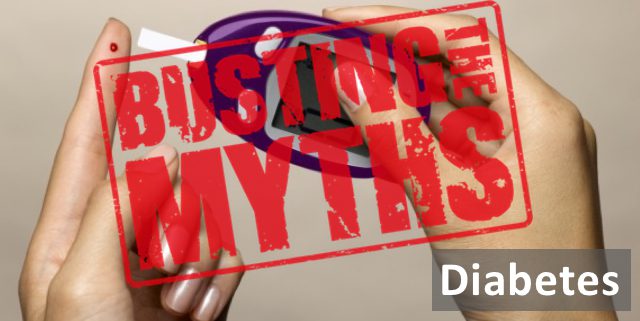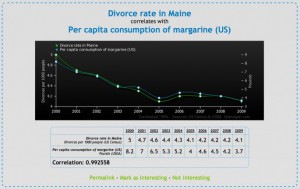Stigma and Myths
Stigma and myths go hand in hand. Myths feed the fear and misunderstanding that people use to stigmatize others and blame victims. Branding people by saying that they “caused their condition” is unproductive and unfair. This problem is happening with Type 1 and Type 2 diabetes. Here are some myths about diabetes and recent research that debunks them.
Myths About Diabetes
Myth 1: “Eating Too Much Sugar Causes Diabetes.”**
Let’s get this one cleared up right now. A person with diabetes has NOT caused their diabetes.
There are several types of diabetes but let’s focus on Type 1 and Type 2. Type 1 diabetes is an autoimmune condition–the body destroys insulin producing cells of the pancreas. This type of diabetes often happens in childhood, although some people have late onset diabetes called LADA.
Type 2 diabetes is also called insulin resistant diabetes. Since the first description in 1880, there has been a search for its cause. Type 2 diabetes usually occurs in people over 40. Heredity plays a role in development of Type 2 diabetes.
The search for the cause is in flux. For example, there is a correlation between television viewing and Type 2 diabetes. However, the reason behind television viewing being linked to Type 2 diabetes has not been figured out. Correlation is not causation. Here is an example of two highly correlated statistics that are unrelated.
Fructose Research
There has been research on the way different types of sugar are metabolized. One type of sugar is fructose, which is found both alone and as a component of sucrose. The major source of fructose in the Western diet is soft drinks. These make up around 7% of the calorie intake in adults and 15% in adolescents. High fructose corn syrup (HFCS) is the additive that most often sweetens soft drinks. Fructose from added sugar (not fruits) has been found to stimulate hunger and block a person’s ability to tell when they are feeling full (called the satiety response). There are several metabolic byproducts, including uric acid, that are implicated in increased liver fat, overall body fat production, and reduced energy expenditure when at rest. There is a hypothesis that the excess uric acid produced in metabolism of fructose from added sugars (HFCS) is part of the process of development of insulin resistant or Type 2 diabetes. The American Diabetes Association states “people should avoid intake of sugar-sweetened beverages” because of the research links. Researchers recommend more research before it can be said that this causes Type 2 diabetes.
Myth 2: If You Are Overweight, You Will Develop Type 2 Diabetes.
No, this is not correct. Most overweight people do not develop Type 2 diabetes. Weight is not the only risk factor for Type 2 diabetes, family history, age and ethnicity are important risk factors. Indeed, people of normal weight or slightly overweight have Type 2 diabetes.
Myth 3: Diabetes Is Contagious.
Diabetes is not contagious. Genes play are role in one’s susceptibility to both Type 1 and Type 2 diabetes. Exposure to certain environmental factors, like viruses, may trigger development of diabetes.
Myth 4: People With Diabetes Cannot Eat Sweets
A balanced diet is essential for people with and without diabetes. People with diabetes do need to
keep track of the total numbers of carbohydrates that they consume. Pictured on the right is a number crunching mom of three sons with Type 1 diabetes. Take a look at the post on their life.
Myth 5: Type 2 Diabetes Is Less Serious Than Type 1
Negative health problems can occur with uncontrolled diabetes whether it is Type 1 or Type 2. An infographic and post are available here to provide information on health problems that can occur.
Myth 6: Having Diabetes Means You Cannot Be Physically Active
 Actually, it is important to be physically active whether you have diabetes or not. Regular physical activity naturally lowers blood glucose. Remember though, always consult your physician before starting any physical fitness program. Physical activity is a way of life for this activist (pictured to the left) with Type 1 diabetes.
Actually, it is important to be physically active whether you have diabetes or not. Regular physical activity naturally lowers blood glucose. Remember though, always consult your physician before starting any physical fitness program. Physical activity is a way of life for this activist (pictured to the left) with Type 1 diabetes.
Stigma’s power lies in silence. The silence that persists when discussion and action should be taking place. The silence one imposes on another for speaking up on a taboo subject, branding them with a label until they are rendered mute or preferably unheard.” ― M.B. Dallocchio
There is an active group of people with Type 1 and Type 2 diabetes (and people with LADA)  online who are speaking up about living with diabetes. They are only too glad to help and support anyone with managing life with diabetes. Check here to learn more about the amazing diabetes online community.
online who are speaking up about living with diabetes. They are only too glad to help and support anyone with managing life with diabetes. Check here to learn more about the amazing diabetes online community.
**Quote American Diabetes Association









I’m nDiabetic type for many years still don’t how much carbs is good for me I’m on insulin and tablets. How to check?
a dietician can provide the answer based on your level of activity and current blood sugar levels. They are an excellent resource and can help modify your specific plan anytime your life changes
I’ve been diabetic type 2 for 20 years and I can’t stress enough
the importance of using your glucose meter.check your sugar before you eat at every meal and at bed time.record the results,show your dr.ask questions. Open up and let him/her know what you are not sure about.they can help alot.communication is the key.talk about it to everyone .family is your strong hold on this.get them involved.
Thank you for your excellent advice. Best, Kathleen